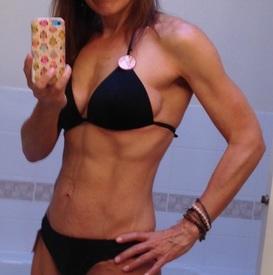how do you eat enough to run well without gaining weight?
Options

mitchyinge
Posts: 196
Hello, am hoping to befriend some of you with open diaries so I can see how it is done - I'm a new runner as of earlier this year, my first marathon is next May (have a half after Christmas some time). My weekday runs vary from 5-10k, three or four times, and my long run is currently only between 10 and 13. The plan is to start lengthening that early next year. It's extremely variable though, sometimes that long one is easy and other times (like now!) I struggle the whole way and feel half dead when it's over.
I probably shouldn't lose much more weight and I would prefer not to gain any either, but am really tired and insanely hungry on the days when I don't run. People don't quite understand the anxiety about gaining weight and think running means I can eat anything I like (even other runners say this) but it seems, if anything, like the running means I need to think much more carefully about what and how much to eat.
Would be very grateful for some real life working examples of good diets and how you plan around the longer runs. Thanks in advance.
I probably shouldn't lose much more weight and I would prefer not to gain any either, but am really tired and insanely hungry on the days when I don't run. People don't quite understand the anxiety about gaining weight and think running means I can eat anything I like (even other runners say this) but it seems, if anything, like the running means I need to think much more carefully about what and how much to eat.
Would be very grateful for some real life working examples of good diets and how you plan around the longer runs. Thanks in advance.
0
Replies
-
Hi! We're pretty similar, I think. I'm running 40-45 mpw and my long runs are anywhere between 12-15 miles at this point. I don't think I'll go any longer, as I'm working on a sub 20 5 KM more than anything - so faster miles instead of more miles (although, still a lot of miles is important - 45 seems to be good for now).
I'm only a few more pounds from my goal weight, although I'm currently in maintenance for the final month of training before my last race of the year. Since my training is getting pretty intense these past few months, I need to fuel them properly (and manage not to gain weight!).
Feel free to add me and look at my diary. I'm goo MOST days. Some days when I feel like crap, I'll eat protein bars for dinner like a chump. Also, you don't need to tell me, I'm already aware of my popcorn addiction. Speaking of which, a big bowl of popcorn the night before a run any longer than 10 miles has always been a good idea in my experience.0 -
Feel free to add me......
I haven't worried too much about weight loss (even though I could stand to lose 20 lbs or so) and have focused more on fitness. I get really rungry at times too. Running doesn't mean you can eat anything you want but it does take fuel - a big thing is to make sure you're recording your net calories burned rather than gross (which is what most HRMs calculate). Runners World suggest a formula for net calories from running as .63 x your body weight in lbs x distance in miles which is usually surprisingly close to what My Garmin reports.
I ran my first 5K a little over 5 years ago and my longest races have been half marathons with a few sprint triathlons / duathlons thrown in for fun.0 -
I love Goldfish and donuts. I keep my cals to around 2000/day and haven't gained an ounce since May. I also eat tons of grilled/baked chicken breasts and I love sandwiches. I try to pick stuff with better macros, but sometimes I just want Oreos and I don't care. Feel free to add me, or just creep my open diary, but don't creep it tomorrow because I'm eating a baker's dozen of donuts after my long run.0
-
yay, running friends
 thank you! am very interested to snoop through your eating and running habits on a daily basis 0
thank you! am very interested to snoop through your eating and running habits on a daily basis 0 -
I have been eating at maintenance and my weight has been extremely stable (BMI around 20) all year.
I use a TDEE model based on my running, lifting and cross training schedule. With regard to my running, I based the running component of my TDEE on my marathon training plan and this formula:
http://m.runnersworld.com/weight-loss/how-many-calories-are-you-really-burning?page=single0 -
thanks, will enjoy crunching some of those numbers tomorrow and see if I can give myself a better idea of what to aim for each day than MFP's suggestions so far
just want to be able to run reasonably well for my age and not get fat, am not asking for much 0
0 -
Hi! You're hitting a pretty good mile per week average.
Your question is one I've been asking myself my whole life (or at least since puberty hit me and I started gaining a lot of weight from natural bodily processes). I ran 5ks throughout middle and high school, and since getting to college have upped the distances to marathons. During my freshman year of college, I gained about 10 pounds, not just due to eating poorly, but due to eating more since my appetite had increased tremendously due to stress and training for my first marathon. Since then, I've been trying to find the perfect amount to eat while still running well. Some things I discovered in this journey:
1. Running will make you hungrier than you really are. You can eat more than what you need to maintain good running and still be hungry.
2. You can go a week eating less than 1000 cal. and running 30-40 miles that week with almost more energy than usual, but you can't continue that through the next week (your body only stores so much energy to get you through such a period).
3. While running, and while running faster and training hard, your body stores more water than usual, making your weight higher without it really being "weight."
4. While you run, you build and tone lean muscle mass, which means that you are going to have more muscle than someone who sits around... and muscle weighs more than fat.
5. Because of the above factors (and various others), your idea racing/running weight will not equal your ideal "model" weight.
There are various articles out there about this, like this one: http://www.runnersworld.com/weight-loss/whats-your-ideal-weight
6. As a runner, one can eat more, but those should hopefully be the more healthy foods. For runners (and other athletes), a calorie does not always equal a calorie and what you eat determines the kind of energy you have. Follow a recommended diet of 55-60% carbs, 15-20% protein, and 20-25% fat. Sugars are an easy source of carbs, but not necessarily the best kind.
7. The more you run, the more efficient you are at burning calories. Thus, the less calories you burn for the same pace. This you need to take into account while you calculate and recalculate your goals.
Here's what I've been doing for the past few months, and it's pretty much helped me maintain, even lose some weight from my BMI of 21 (for reference, I am running 50-60 mpw): I have my base calorie goal set at 1340, which is my BMR, and I log my running according to this calculator, not MFP's: weight*0.63*distance run. It usually is a lower number (I run 20 miles and only burn 1612 calories), but I find that it is better to underestimate the calories rather than get the exact number, since this way all the other factors balance out a bit.
The goal, in the end, is to make sure that you're eating enough to fuel your body. Sometimes, you will want to eat a little more to have that extra energy for a tough interval run or a race. But most of the time, your body does fine as long as you are putting in as many calories as go out.0 -
Oh that's such a detailed and helpful response, thanks so much. I appreciate it! Nobody believed me when I said I had actually gained weight despite appearing subjectively smaller and smaller :ohwell: now I can defend myself!
My cals per mile according to your approach come out about the same as the Garmin says - around 70, obviously it should vary according to pace? But that's a good way of doing it. Is your BMR amount enough for you on the days you don't run?0 -
I found that if go the TDEE route and eat to maintenance the day before my long run that I am able to maintain my weight loss and still fuel my runs. That is what I did through my half marathon training and never got truly famished nor did I feel drained after my runs. A time or two towards the end when my long run got into the 10+ miles area I would get pretty hungry afterwards, but I also never adjusted my calories up to reflect the added activity so I will chalk it up to being under fueled and stuff. All the other days I would do a -20% deficit and be fine.
This was good to because then I could eat to a set number and not worry about the different bouncing calorie intake numbers.0 -
This is such a great post, do any of you worry about hitting macros? what do you have set for Macros here on MFP?0
-
I think I set mine to 60% carbs, 15% protein and the rest fat but probably haven't mastered it yet. This is going to be the week I start eating lots of helpful calories.0
-
This is such a great post, do any of you worry about hitting macros? what do you have set for Macros here on MFP?
I have mine set to 45/25/30 (carbs/fat/prot) and it is what works for me....though right now I am not so worried about hitting the numbers. I am still in the process of losing weight so more focused on calories and stuff than the macro numbers.0 -
This is such a great post, do any of you worry about hitting macros? what do you have set for Macros here on MFP?
I have mine set to 45/25/30 (carbs/fat/prot) and it is what works for me....though right now I am not so worried about hitting the numbers. I am still in the process of losing weight so more focused on calories and stuff than the macro numbers.
I need to loose weight too, so you are more focused on eating a certain number of calories?0 -
I was able to lose a lot of weight when my mileage was about 30 -35 per week and I was training for a half marathon by eating around 1,350 to 1,500 calories per day. However, when I started upping my miles to 40 or more per week to train for a marathon, I was unable to lose an ounce as I had to replace just about all my calories to maintain enough energy to run my long runs. I didn't gain any weight while training for the marathon either, though.
Edited to add: just reading the comment above about the water weight. The more and longer you run, the more your body will learn to store glycogen. A good amount of water is stored with that glycogen. So, a couple of days before your long runs, you may actually see an increase in your weight - but, if you've been eating right, it's just water. It will come off during your long run as you use your energy stores. It drove me crazy while training to see my weight fluctuate by several pounds throughout the week as I was also worried about gaining weight.0 -
direct reply to OP,
I agree, calories burned SHOULD vary according to pace. I also read an interesting article debunking the "a mile equals a mile" myth, since even though walking a mile takes more time than running one, one is burning fuel differently for one than the other. I don't get too technical with my calorie burns though, since like I mentioned before, it balances out. Some days I run faster, some I run slower.
As for my BMR being enough on rest days... nope. I almost always go over on those days. However, the way I see it, even when I have a rest day, I am still walking places and my TDEE is at least what I end up eating... and it's the day after a long run. On the day of the long run, I never eat all my calories back. Also, what someone else mentioned, I tend to eat more on the days before a long run too to help prevent hitting the wall.
Another person mentioned looking at the weekly average, not the daily. That has really worked for me.0 -
thank you, I think it's coming together in my head (a bit) I can't believe I cried myself to sleep over this last night - well not this, but had a terrible run and it actually felt like the end of the world :blushing:
so, glossing over that, say BMR is 1300 (this is just a rough guess) and am running around 26 miles a week which is 2255 calories, this is an extra 320 calories a day across the week, so I should be eating about 1600 a day?0 -
just bumping this because, unlike most adults, I still don't know how to feed myself appropriately0
-
This is such a great post, do any of you worry about hitting macros? what do you have set for Macros here on MFP?
I have mine set to 45/25/30 (carbs/fat/prot) and it is what works for me....though right now I am not so worried about hitting the numbers. I am still in the process of losing weight so more focused on calories and stuff than the macro numbers.
I need to loose weight too, so you are more focused on eating a certain number of calories?
Yes and no, I focus on the calories and protein, as I love carbs so those come easy to me lol. I am always low on protein. I ignore fat...unless I have a long run the next day. Too much fat causes GI issues and those suck on long runs lol.0 -
I'm late to the game but I'll gave you my 2 cents.
My bmr is around 1350. My maintenance calories without any running and weight lifiting is around 1700 (I'm sitting at a desk all day, but I guess that burns more calories than lying in bed all day, which is what bmr is).
What I figured out doing alot of reading is: you should never eat below bmr, like NEVER.
What I am doing: I'm eating at a difficit right now as I want to lose body fat. So my goal is set at 1400 cal a day + I eat what I run as I run it. So far it's working well. I had a hard time when I started half marathon training and upping my mileage. I was always hungry I the end of each long run was a misery. What I found helped a lot is upping my carbs. I'm 60% carbs, 20% protein, 20% fat. I try to eat carbs + a bit of protein as soon as I come home from a run and I find it helps preventing any crazy hunger I may get later that day or night. I literally eat before taking a shower (and plug my garmin and log my data while doing it haha)
I've read that book that I liked a lot:
http://www.amazon.com/Racing-Weight-Lean-Performance-Series/dp/1934030996
It's not only about losing weight. I learned a couple great things about nutrition for endurance athlete (and long distance runners).
Good luck!0 -
I'm late to the game but I'll gave you my 2 cents.
My bmr is around 1350. My maintenance calories without any running and weight lifiting is around 1700 (I'm sitting at a desk all day, but I guess that burns more calories than lying in bed all day, which is what bmr is).
What I figured out doing alot of reading is: you should never eat below bmr, like NEVER.
What I am doing: I'm eating at a difficit right now as I want to lose body fat. So my goal is set at 1400 cal a day + I eat what I run as I run it. So far it's working well. I had a hard time when I started half marathon training and upping my mileage. I was always hungry I the end of each long run was a misery. What I found helped a lot is upping my carbs. I'm 60% carbs, 20% protein, 20% fat. I try to eat carbs + a bit of protein as soon as I come home from a run and I find it helps preventing any crazy hunger I may get later that day or night. I literally eat before taking a shower (and plug my garmin and log my data while doing it haha)
I've read that book that I liked a lot:
http://www.amazon.com/Racing-Weight-Lean-Performance-Series/dp/1934030996
It's not only about losing weight. I learned a couple great things about nutrition for endurance athlete (and long distance runners).
Good luck!
Not knocking this, as this is a very very good example. Just wanted to point out that the macro balance will be individual to everyone. 60/20/20 works for Jean, but 50/25/25 works for me during HM. So macro percentages will have to be played with for each individual person. Just pointing this out.0 -
thank you! am grateful for all thoughts on this - I have a copy of that book somewhere and also the Quick Start guide, think there is a recipe book on its way to accompany them
I stretch, eat then shower while Garmin uploads too :laugh:
I wish I could live in some sort of training camp at least some of the time, where all I have to do is run and eat what they give me and then sleep while someone else worries about my weight (but be free to party at the weekends) that would be bliss0 -
I used body media fit so I know how many calories I am burning. It was a great tool for me while marathon training.0
-
I'm late to the game but I'll gave you my 2 cents.
My bmr is around 1350. My maintenance calories without any running and weight lifiting is around 1700 (I'm sitting at a desk all day, but I guess that burns more calories than lying in bed all day, which is what bmr is).
What I figured out doing alot of reading is: you should never eat below bmr, like NEVER.
What I am doing: I'm eating at a difficit right now as I want to lose body fat. So my goal is set at 1400 cal a day + I eat what I run as I run it. So far it's working well. I had a hard time when I started half marathon training and upping my mileage. I was always hungry I the end of each long run was a misery. What I found helped a lot is upping my carbs. I'm 60% carbs, 20% protein, 20% fat. I try to eat carbs + a bit of protein as soon as I come home from a run and I find it helps preventing any crazy hunger I may get later that day or night. I literally eat before taking a shower (and plug my garmin and log my data while doing it haha)
I've read that book that I liked a lot:
http://www.amazon.com/Racing-Weight-Lean-Performance-Series/dp/1934030996
It's not only about losing weight. I learned a couple great things about nutrition for endurance athlete (and long distance runners).
Good luck!
Not knocking this, as this is a very very good example. Just wanted to point out that the macro balance will be individual to everyone. 60/20/20 works for Jean, but 50/25/25 works for me during HM. So macro percentages will have to be played with for each individual person. Just pointing this out.
That's true! 50% carbs wasn't working for me. But I had to try a couple of combinations to find what worked.
I was afraid to go over 50% carbs because of the wild spread notion that carbs are bad for weight loss etc etc.. I just wish someone would have told me to upped it before. That's why I'm was suggesting it.0 -
just bumping this because, unlike most adults, I still don't know how to feed myself appropriately
Based on the popularity of this website, I'm pretty sure most adults don't know how to feed themselves appropriately. Thanks for starting this thread - it was really interesting reading.0 -
just bumping this because, unlike most adults, I still don't know how to feed myself appropriately
This honestly takes time. I am still finding foods that work and don't work for me with running. Like pasta...I love pasta. But I can't do the heavy carb loads the night before like some do, my GI won't support it. And the next morning I will be running off deep into the woods to relieve myself lol...:embarassed: ...Yeah, that wasn't fun. So I know I can't have anything like that the night before. I have to build up my carbs over the week for my long runs. So that last few weeks before my HM races I shift to 60/20/20 to carb load gradually. You just have to play with the foods and see what works for you. Takes time.0 -
I am trying to lose weight so I try to eat at a deficit. I use the MFP method - it says that I burn 2050 cals/day before exercise, so I target 1550 net cals/day then I eat back the calories I burn exercising (based on my HRM). I do not focus on macros, I just try to choose foods that are filling. I have been running for 5 years now and I am getting a handle on what makes me feel good and what is horrible to run on. For my long runs, I eat back some of the calories before I even go on a run - basically if I am planning a long run on Saturday morning, I will eat at maintenance, not deficit, on Friday. Otherwise, I feel way to drained at the end of my run. After my long run, I eat fairly normally and treat myself to ice cream. I run for ice cream.0
This discussion has been closed.










